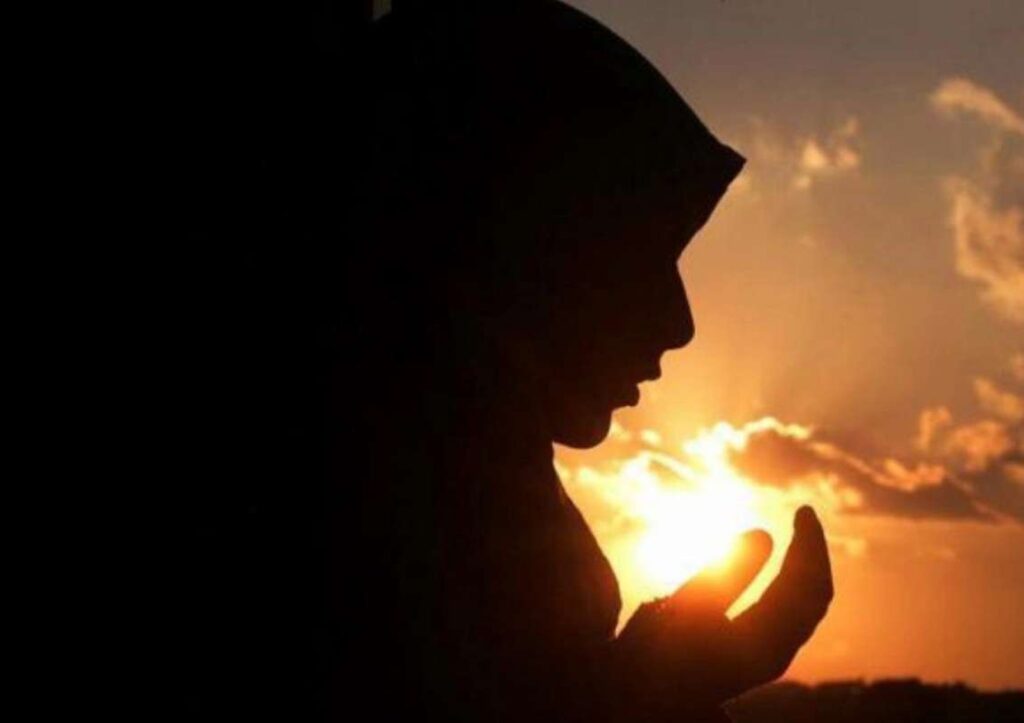Allah does not require our prayers or remembering. He is significantly superior to that. However, we are entirely dependent on Him. To make our life easier, we must make a plea (dua) and do dhikr (remembrance).
It is stated in the Holy Quran that we are the people who require Him, although He has no requirements and is deserving of praise according to Allah in Surah Fatir.
Dua Brings Us Closer to Allah
One of the most simple and effective weapon methods for us is to recall and pray to Allah through dua after namaz.
The five daily prayers are mandatory in Islam and they help us develop the habit of being obsequious and recalling the Almighty.
Indeed, many compulsory duas and dhikrs are taken from the Prophetic Sunnah.
Tips And Etiquettes To Make Dua After Namaz
The only way to be closer to Allah Pak goes through Dua after namaz. When we pray to God we feel close to Allah and nothing is more beautiful than that. Here are some tips to make Dua after namaz.
- Do not talk to Allah in any ambiguity. It is always a good idea to talk to Allah in the clearest way possible. Do not beat about the bush and talk to Allah the way you like it.
- Allah listens to the Dua that starts with Darood Pak. Always send your blessings to the Holy prophet peace be upon him so you can get the blessings in return.
- Be very kind and compassionate when you are making dua. Do not be arrogant and mean because Allah doesn’t like it.
- It is okay if you feel like crying while making dua. Do not hold your tears because Allah knows what is in our hearts.
What Exactly Is Tasbeeh (tasbih) After Namaz?
According to Sahih Muslims, the Prophet (PBUH) declared that the Tasbih (SubhanAllah) and Tahmid (Alhamdulillah) should be said 33 times after each required prayer.
In comparison, the Takbir (Allahu Akbar) should be chanted 34 times, and the one who recites would never be dissatisfied.
After Salah, How Should We Make Duas?
Allah states in Surah An-Nisa to recall Allah standing, sitting, or laying on our sides after Salah. Dhikr and dua after salah are actions Allah urges us to perform.
Dua #1 – When the Prophet (PBUH) used to complete his namaz, he would beseech Allah for forgiveness (three times) and then say: “Allahumma antassalam waminkassalam, tabarakta ya Dhal Jalali wal Ikram” (Affirming that Allah is the One who grants security and praising Him as the One who possesses majesty and nobility).
Dua#2 – “La ilaha illal lahu wah dahu la sharika lah, lahul mulku wal hul hamdu, wahu wa ‘ala kulli shay’ in qadir,” says the second dua. Allah lima a’taita, wala mu’tiya lima mana’ta, wala yan fa’u dhal jaddi min kal jadd.” (Proclaiming Allah’s oneness as the one God with no associates. None can prohibit what He gives or takes and what He withholds, and all efforts against Him are fruitless).
Dua#3 – “La ilaha illa hu wah dahu la sharee kalah, lahul mulku wala hul hamdu wahu wa’ ala kulli shay in Qadeer” (indication that only He, Allah, with no associates, is worthy of worship. Everything that exists, even praise, belongs to Him. He has authority over all and is the provider and taker of life). This recital was directed by the Prophet (PBUH) ten times after Maghrib and Fajr prayers. He stated that Allah would be the protector of whoever does this dua until the very next day. He will bestow 10 good actions on the person and eliminate ten harmful deeds.
Dua #4 – After each salah, we are also directed to recite the 255th verse of Surah al-Baqarah (Ayat al-Kursi).
Dua#5 – “Allah umma a’inni ‘ala dhik rika wa shuk rika wa husni’ ibada tika” (Asking Allah’s help, remembering, thanking, and worshiping Him in the best way possible).
Dua#6 – “Allah umma inni a’udhu bika minal bukhli wa a’udhu bika min al jubni wa a’udhu bika min fitna tid dunya wa a’udhu bika min ‘adha bil qabr” (Seeking shelter with Allah from stinginess, cowardice, attaining the age of senility, the trials of the world, and the penalty of the tomb.)
Dua#7 – “Allah umma inni a’udhu bika min al kufri wal faqri wa’az abal qabri” (Seeking Allah’s refuge from unbelief, poverty, and deep anguish).
Dua #8 – After Fajr and Maghrib prayers, recite these surahs three times.
Dua#9 – ‘La ilaha illAllahu walana’bud illa iyyah ahlan ni’ mati wal fadli wath thana ‘ilhas a la ilaha illAllah mukh lisina lahuddina walaw karihal kafirun” (Asserting that Allah alone is deserving of worship, with no co-religionists.) The Dominion belongs to Him, as does all honor, and He is capable of achieving anything; all power and strength belong to Him. He alone is worthy of adoration, and we only adore Him. He bestows blessings and compassion, and He is deserving of all honor. None but Allah is worthy of praise, and we are genuine in our faith and devotion to Him (even if the unbelievers despise it).
Dua #10 – According to Sahih Muslim, after each salah, a person who says Subhan’Allah thirty-three times, Alhamdulillah thirty-three times, and Allahu Akbar thirty-three times, totaling 99, then says to complete a hundred:
In Qadir, ‘Lailahaillallahu wahdahu lasharikalahu lahulmulku walahul hamdu waHuwa’ala kalishay (Declaring Allah’s oneness, without partners, Who is the Possessor of Dominion, deserving of honor, and mighty overall), his sins will be forgiven, even though they are as many as sea foam.
Also Read: Surah Kausar’s benefits.
Duas Are Necessary After Salah and Namaz
Allah has given us a lot of meaningful duas with which to recall and surrender to Him. All of this has been achieved through the genuine sunnah.
Allah states in Surah Al-Ahzab that the Prophet (PBUH) set a fantastic example for One who is hopeful and the Day of Reckoning and who constantly recalls Allah.
The significance of these dhikr and dua after salah to be completed after each prayer indicates the significance of remembering Allah.
Allah tells the faithful in Surah al-Munafiqun not to let their belongings and kids divert them from remembering Allah since one who fails in this respect is among the losers.
Dua and dhikr play essential roles in our lives. Humans are prone to laziness and procrastination. If we do not perform these duas after salah regularly, we may gradually disappear from Allah’s remembrance.
We would be the defeated ones if that happened. Moving far away from Allah necessitates losing our moral compass and transgressing.
Instead, we must persevere and seek His joy via constant remembering. We should never forget Allah, as it is stated in Surah Al-Baqarah, remember Him and He will recall you.
Dua’s Value and Importance
Compared to invocation, dua signifies supplication, which involves speaking with a god. It is a crucial ingredient of our religion and faith. We pray to Almighty Allah for whatever we crave in our lives, no matter how great or tiny it is.
Dua is the only way and precious way to communicate with Allah; it is because of Dua that we become nearer to our Lord. Consequently, Dua is a way of bringing the weak man closer to Allah.
Dua is a kind of prayer that you can do at any time and from anywhere; there is no set time or location for doing Dua. It is seen as a weapon via which we might improve our condition by requesting assistance from Almighty Allah.
Dua may alter your destiny and enhance your lifestyle; therefore, strive to make it in any scenario since it will always bring you close to Almighty Allah. It sustains a person’s belief in One Lord and sentences all types of idolatry.
In the Holy Quran, Allah Almighty states, “When my followers question you about me, (inform them) I am close” (to them). When a suppliant person calls on me, I listen to his plea.” (Quran, 2:186).
Worship Is Referred To As Dua
“The most acceptable worship is Dua,” our dear Prophet (SAW) remarked. (Al-Sahih) Jami’s
Dua is a type of worship, and our Holy Prophet (PBUH) described it as the most acceptable type of worship. When we say Dua in front of Almighty ALLAH for our wants and needs, not only is our Dua met but we are also rewarded for worshiping.
While making Dua, we acknowledge ALLAH’s might, authority, and our frailty in front of HIM. We never can fail with Dua, and we can never achieve without it. When a person makes Dua, he cannot become arrogant; it is the natural outcome of absolute adoration.
So we may conclude from this passage that Allah Almighty hears us when we perform Dua. We must always seek Allah’s guidance.



